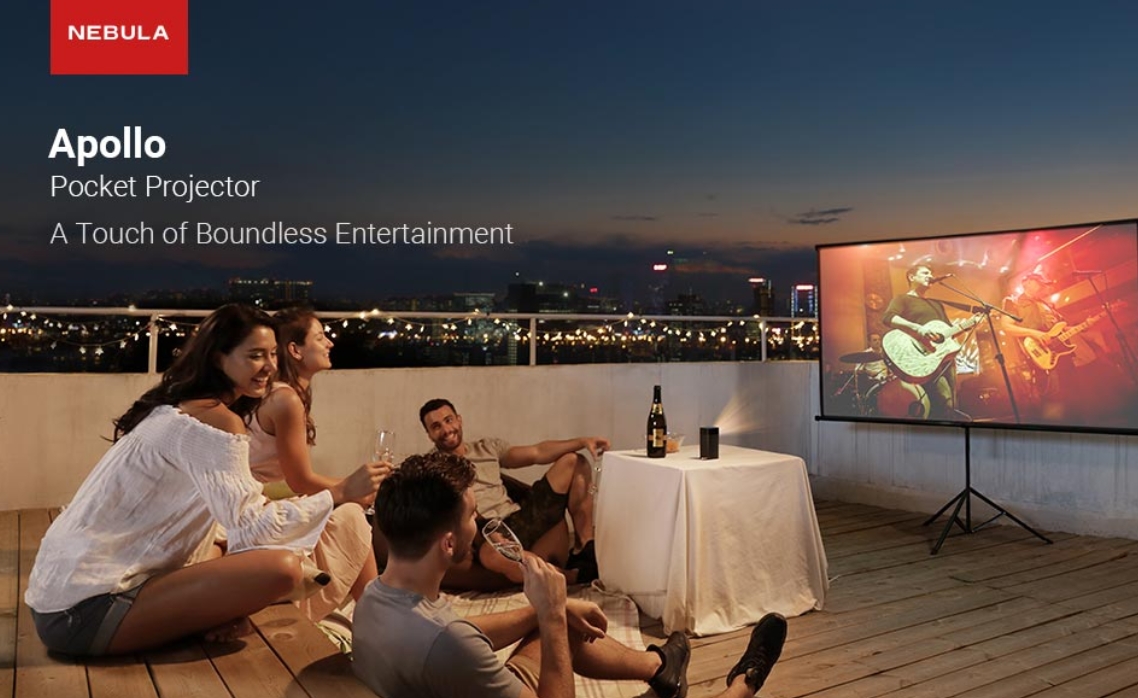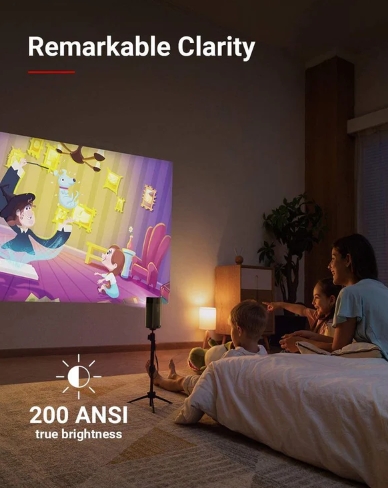The debate over whether home projectors are better than traditional TVs has gained momentum in recent years, driven by the increasing demand for immersive home entertainment setups. People now seek more than just a screen to watch their favorite movies or shows—they want a cinematic experience. Deciding between a projector and a TV depends largely on individual needs, space constraints, and entertainment preferences. In this article, we’ll explore the pros and cons of each to help you make an informed decision.
Installation and Space Considerations
When it comes to installation and space, projectors and TVs offer vastly different experiences. Projectors typically require more flexibility in terms of space and setup. For optimal use, you’ll need to consider room size, placement, and how you plan to mount or position the projector. Additionally, projectors are usually best in rooms that can be darkened, as they rely on low ambient lighting for ideal performance. On the other hand, TVs offer a much simpler installation process. You can easily place them on a stand or mount them on the wall, and they don’t require specific lighting conditions. TVs are also more forgiving in smaller spaces, making them ideal for compact apartments or rooms where wall space is limited. However, a projector's portability can be a significant advantage for those who wish to create a flexible viewing setup, moving it from the living room to the bedroom or even outdoors. Ultimately, if you have a large, dedicated space for entertainment, a projector might offer a better experience. However, for smaller rooms or easy installation, a TV may be the more practical choice.
Screen Size and Viewing Experience
Immersive Large-Screen Experience
Projectors have an undeniable advantage when it comes to screen size. If you're looking to replicate a cinema experience at home, a projector is the clear winner. With many projectors capable of producing screen sizes upwards of 100 inches, they provide a truly immersive experience that traditional TVs can’t match without a significant price increase. For movie enthusiasts and sports fans, this can be a game-changer. A projector is especially ideal for those with larger living spaces or home theater setups. You can transform a blank wall or a projector screen into a massive viewing area, creating a more engaging and enjoyable entertainment experience for everyone in the room. Whether you're hosting a movie night with friends or watching the big game, the larger screen size enhances the overall experience.

Viewing Angle and Comfort
Projectors offer more flexibility when it comes to viewing angles, making them great for family gatherings or large groups. You don’t have to worry as much about where people are sitting, as the image can be adjusted to cover a wide area without losing clarity. In contrast, TVs often suffer from restricted viewing angles, especially with older models, where sitting off-center may result in a distorted picture or muted colors. However, lighting is a critical factor. While projectors excel in dark or dimly lit rooms, ambient light can wash out the image and make viewing uncomfortable. TVs, with their inherent brightness, are more forgiving in brightly lit environments, providing a more consistent experience no matter the time of day.
Image Quality: Projector vs. TV
Resolution and Clarity: The Difference in Picture Quality
When it comes to picture quality, TVs still hold an edge, particularly in well-lit rooms. High-end TVs with OLED or QLED technology offer stunning brightness, sharpness, and color reproduction that most projectors cannot easily match. The clarity of a 4K TV is often more pronounced due to its ability to maintain brightness in a variety of lighting conditions, which is crucial for everyday use. Projectors, however, excel in darker environments, where they can produce stunningly detailed images. With 4K projectors now becoming more accessible, users can enjoy high-definition viewing at sizes that TVs can’t provide without an enormous price tag. For cinephiles and dedicated home theater setups, projectors can offer a captivating experience—particularly with content shot in high resolution.

Contrast and Color Accuracy
Contrast and color accuracy are other areas where TVs have historically had an upper hand. The blacks are deeper, the contrast sharper, and the colors often more vibrant on high-end TVs, especially OLED models. These features are particularly important for those who are particular about visual quality, such as gamers or movie enthusiasts. However, modern projectors have made significant strides in improving contrast and color accuracy. High-end 4K projectors can now rival TVs in delivering rich, accurate colors and deep contrast levels, making them a viable option for those who prioritize screen size but don’t want to sacrifice image quality. If you are a fan of movie watching or gaming in a dark room, a high-end projector could offer a comparable, if not superior, viewing experience in terms of contrast.
Cost Efficiency and Longevity
One of the primary considerations when deciding between a projector and a TV is cost efficiency. While 4K projectors used to be prohibitively expensive, their prices have dropped significantly, making them more accessible to average consumers. However, the upfront cost of a projector can still be higher than that of a comparable-sized TV. That said, projectors may offer better long-term value for those seeking larger screen sizes. The ability to project an image over 100 inches without the cost scaling as it does with TVs makes projectors more cost-effective for those who prioritize size. On the downside, projectors require occasional lamp replacements and more frequent maintenance, which can add to the long-term cost.
Elevate Your Home Theater with the Nebula Projector
If you're seeking a compact yet powerful solution to elevate your home entertainment, the Nebula Apollo Portable Projector is an ideal choice. This small but mighty projector features a 200 ANSI lumen DLP lamp that delivers clear, vibrant images, ensuring you see every detail in movies, shows, and games. Its ultra-portable design allows the projection of content up to 100 inches, providing a large-screen experience anywhere, whether in your living room or for outdoor screenings. A standout feature is the interactive touch panel, enabling easy navigation through entertainment options and settings with a simple swipe. Running on Android 7.1, the Apollo lets you download apps like Netflix and YouTube directly, though it's crucial to view copyrighted content through the apps rather than mirroring. With multiple connection options, including HDMI, USB, and wireless connectivity via AirPlay and Bluetooth, it offers versatile media projection. Its 9,750mAh battery provides up to 4 hours of movie playtime, making it perfect for extended viewing. Whether you're a cinephile or a casual viewer, the Nebula Apollo promises a high-quality, immersive experience.
Conclusion
In the debate between projectors and TVs, the best choice depends on your needs. For an immersive, large-screen experience in a dedicated home theater, a projector offers unmatched screen sizes that create a true cinematic feel. However, for everyday use, a TV is often more practical, providing better image quality in bright environments, minimal setup, and durability with little maintenance. For those seeking a flexible, portable option, the Nebula Apollo Portable Projector is worth considering. Ultimately, the decision comes down to your space, viewing habits, and budget, as each option has its strengths based on personal preferences.